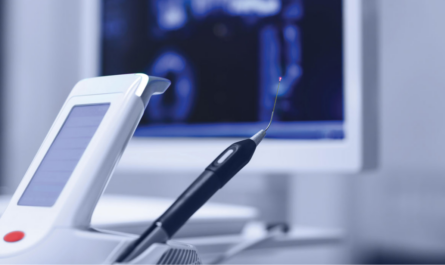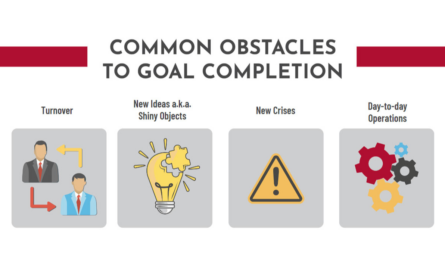By David Harris B. Comm, MBA, CMA, FICB, CD, TEP
My two decades of investigating embezzlement against dentists has given me insight into the pathology of this type of fraud that is probably not possessed by anyone outside my company. Many of the people who lecture and write about fraud in dental offices are not full-time fraud investigators; they either make their living from speaking about fraud or offer a range of consulting services that includes fraud investigation but also many other services. My own company’s situation is a bit different; our raison d’etre is to investigate and remediate frauds committed against dentists. In this context we encounter hundreds of frauds annually.
Probably the question I get asked most frequently by dentists is what they can do to prevent fraud from happening in their office.
When I tell them that there is nothing that they can do to prevent fraud, they often dismiss me as either an incurable pessimist or feel that I have some financial motivation for making the statement.
I’ll readily admit that I have seen enough of the bad side of humanity to become a bit jaded. However, I have no financial motive whatsoever for telling people that fraud is impossible to prevent; if I actually had an elixir that was effective at preventing fraud, I could make a lot of money selling it.
Let me explain myself a bit. Most embezzlement in dental offices takes place because a staff member has decided that the best solution to their financial problems involves stealing from their employer. In many cases that we are involved with, these financial problems are crippling; we also see situations where the financial “problems” are really in the mind of the employee and would be classified by you or me as greed. The large economic disparity between most dentists and their employees makes stealing easy to rationalize and it’s even easier to rationalize stealing from a big, profitable insurance company (this is a pattern that we see in many office thefts – the embezzler gives little thought to the possibility of the dentist being financially accountable for this type of theft).
Once someone has decided that sticking their hand in your pocket will make their life better, the next question for them to address is how to pull it off. In this battle of wits between you and the embezzler, they have all the advantages; they know you well and are well aware of what you scrutinize, and more importantly, what you don’t. I should mention that for the frauds we see, the average seniority for thieves is about eight years at the practice. While there are certainly some people who get hired and start stealing quickly, they are often caught before they do enough damage to force you to vary your retirement plans.
No matter how hard you try, if you have any aspirations of treating more than the occasional patient, you can’t monitor every one of the thousands of financial activities that take place in your office every month. Accordingly, it is simply a question of finding out what you don’t look at and targeting that area for fraudulent activities. Examining more, or different, things will simply cause the thief to adapt their modality of stealing to conform to your changed pattern. There are hundreds of potential fraud pathways in every dental office, and you simply can’t plug them all.
I can give you a simple example — one of the recommendations of many articles on fraud is that a dentist should look at their daily activities report closely each day. Please don’t misunderstand me – reviewing your daysheet is an excellent idea because it will allow you to catch accidental omissions (and there are often enough of those to justify the time involved in this review). However, it is childishly simple to effect a fraudulent transaction that will not show up on a daysheet, so as a fraud prevention technique, daysheet review is almost useless. If you do routinely examine the daysheet, the thief will certainly know this and will find a way to bypass.
There has been a lot written on dental fraud; many articles suggest various ways to make your practice a “hard target” as a deterrent against fraud – review your daysheet, make cash deposits yourself, etc. In the two decades I have spent investigating frauds, I have come to realize that this “hard target” concept is fallacious. Employees who steal from you are driven by a powerful force and are not deterred by either your efforts to make it more difficult for them to steal or the possibility of punishment.
The hard target approach is really a carryover from what deters other types of theft. For example, installing an alarm system in your house can dramatically reduce the probability of being burglarized. The difference between your house and your practice is that the house burglar has a choice of which house to enter and will typically redirect their attention to an easier target; the embezzler in your office does not have this option and will simply adapt.
When I say that preventing fraud is an impossibility, I am not in any way suggesting that there is nothing you can do to protect yourself. There are a number steps you can take to allow for early detection of fraud, to minimize financial and other damage in the event of fraud, and to maximize recovery in the event that embezzlement does take place.
Detect it Early
The key to early detection is to know your employees and to look for employee behavior that is consistent with fraud. Here are some of the tip-offs that you should be particularly sensitive to:
- Staff members in financial difficulty – some of the symptoms include frequent requests for pay advances, creditors calling your office, or appearing to live beyond their means. Certain types of adversity also normally create financial issues including a spouse losing their job or a going through a divorce.
- Staff members with addictions or other compulsive behaviors. This can be difficult to spot – one visible symptom is the employee who blanks his or her computer screen when someone walks by, or the person who purchases large amounts of lottery tickets. Behaviors consistent with drug or alcohol addiction should be cause for concern.
- Staff members who appear to be super-dedicated. This is counterintuitive, because we are socialized to value a strong work ethic and not to be suspicious of seemingly dedicated employees. However, employees who never take vacation (or only take it when the whole office is closed), drag themselves to work no matter how sick they are, or work lots of extra hours (particularly when no one else is in the office) are quite likely to be committing fraud.
- Employees who are “control freaks” – we need to be suspicious of the staff member who attempts to be the nexus of communication between patients and the office, people who are unusually territorial, or employees who resist any of the following:
- Upgrades to dental software
- Changes to banking or payroll arrangements
- Changing accounting or bookkeeping services.
- Involvement of outside consultants
In almost every fraud in which I have been involved, several of these symptoms were present but were ignored or not properly recognized by the dentist.
Minimize Damage
There are several things dentists can do to minimize the impact of fraud on themselves. Some things must be done before a fraud is even suspected; others must be implemented once the dentist suspects there is a problem.
For example, it is essential to have a reliable data backup system, to use it regularly, to take backup media off site, and for the dentist to personally have off-site custody of a recent backup at all times.
A burglar alarm system is a good idea for other reasons anyway. If used properly (and by this I mean each staff member having their own alarm code instead of the office-wide “Unicode”), we have an effective way of monitoring staff who visit the office at odd hours, and the logs may prove to be useful evidence in court proceedings.
Using the authority levels (I.e. each employee with a unique password and permissions appropriate to their job) properly that are built into virtually every piece of dental software will both shut down certain types of fraud and make the forensic process far easier. One of my continual sources of annoyance with some of the dental software vendors is that, as a way to manage support costs, they turn much of their built-in security OFF by default, and you have to specifically request that it be enabled.
While I hesitate to even mention this, one behavior that has hurt many dentists who are fraud victims is the dentist cutting corners with dental insurance. This often involves misrepresenting the actual treatment rendered in an attempt to gain benefits for the patient. Doing this can amount to giving a “get out of jail free card” to a thief. I will never forget confronting one thief who said to me “I am a receptionist making a tenth of what the dentist makes. I know that he has overbilled insurance companies for a lot of stuff. Does he really want to play ‘chicken’ with me?” As distasteful as it was, the dentist in this situation really had no choice but to let the thief slink away without consequence.
Once fraud is suspected, it is both difficult and essential for the dentist not to let his or her suspicions show. Many dentists have worsened their positions by suddenly asking for additional reports, unpreparedly confronting staff members or engaging their accountants to “have a look”. These ham-handed attempts to uncover the fraud have often resulted in the destruction of evidence or worse. We have seen a few instances where a do-it-yourself investigation tipped off the thief, who promptly erased both the computer’s hard drive and the backup medium. In at least once case, a concerned embezzler covered their tracks by burning down the dental office.
If you have read this far into the article, it is either because you are fascinated with the criminal thought process or because you consider it possible that you are a fraud victim. If your reason is the former, I completely understand your interest; people also get enjoyment from watching crime shows, car racing pileups or sports bloopers on TV.
If you are still here because you are concerned, and if you only take away one thing from this article, it should be this – FRAUD INVESTIGATION IS NOT A DO-IT-YOURSELF PROJECT. You need expert assistance, and soon. Trying to “go it alone” or getting assistance from well-intentioned advisors (who may have excellent professional credentials, but in some area other than fraud investigation) can make things much worse. If your suspicions of fraud are not well-founded (and occasionally this happens), you may have destroyed working relationships and possibly exposed yourself to litigation. On the other hand, if your concerns are legitimate, these actions will make the ultimate investigation more difficult and may jeopardize your chances of obtaining restitution or criminal conviction against the thief.
Maximize Recovery
Although it is unusual to obtain much recovery from the thief (their lack of money is normally what pushes them to steal from you in the first place), we have had excellent success in obtaining recovery from certain other sources. Sources of recovery include:
- Your fidelity (“employee dishonesty”) insurance carrier. This normally requires a “loss report” that must be properly prepared and submitted in a timely fashion.
- Banks – if money was stolen by means of fraudulently endorsed checks, it is often possible to recover funds from the involved bank or banks. The banks don’t normally make this process easy, so you may need some help with this one.
- Court-ordered restitution; obtained at the end of a criminal or civil trial.
- Sometimes, the spouse of the thief or some other interested person ( a parent, perhaps) will fund the restitution in order to protect the reputations of all concerned in the community. This happens relatively infrequently, but is certainly welcome when it does.
Again, in this area it is quite possible for the unwary to miss opportunities or expose themselves to legal action, and expert advice is needed.
Conclusion
It’s unfortunate that embezzlement in dental offices occurs as frequently as it does, and that no practice is truly safe from this problem. However, awareness and vigilance on the part of a dentist can allow for early detection of fraudulent activity. If fraud is suspected, proper advice and assistance can allow for a quick confirmation or rejection of the suspicion. If fraud is taking place, good advice can make the recovery process go much more smoothly and can minimize the financial and emotional cost to a dentist.





